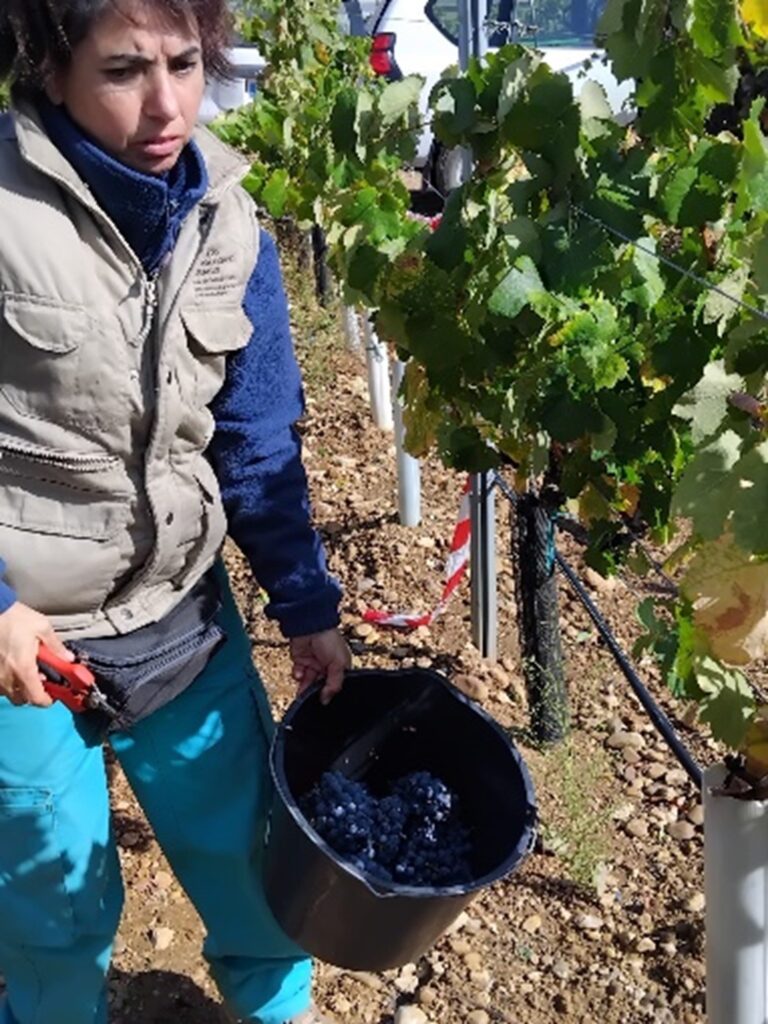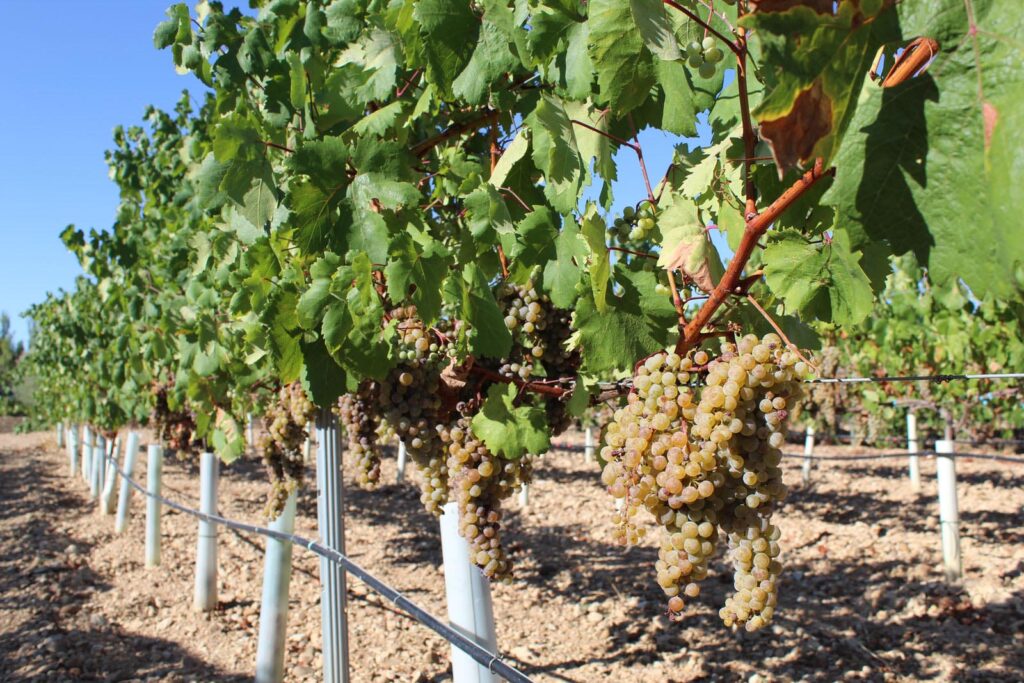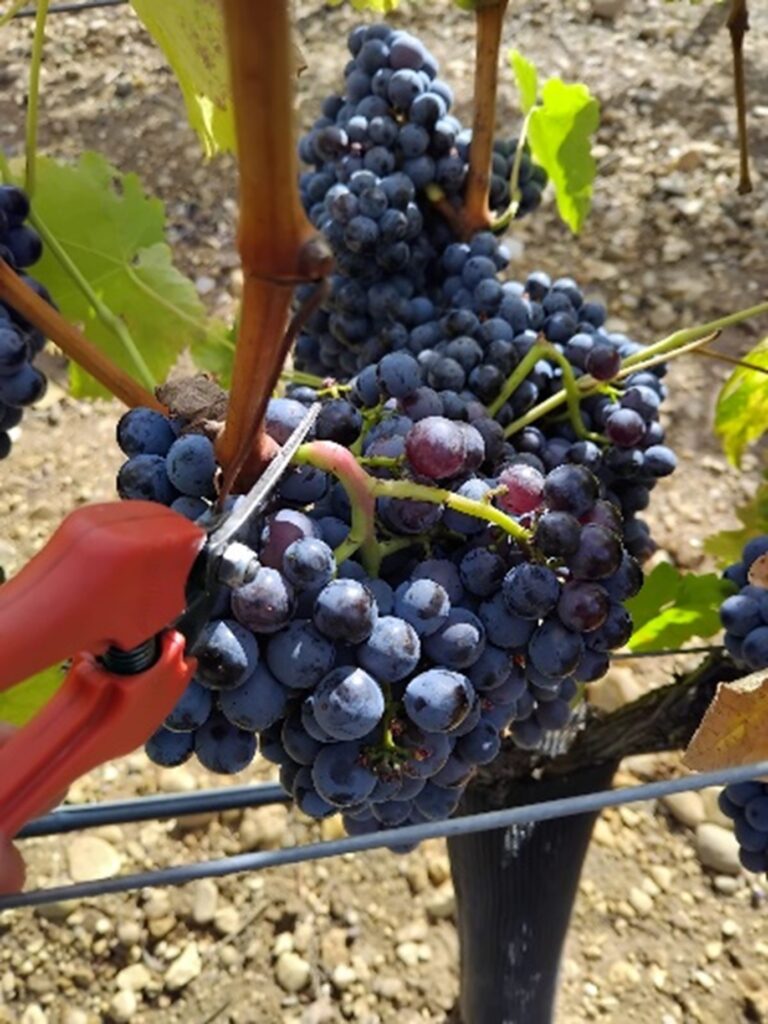Concluímos a vindima de 2024!
O início do outono marca a época da vindima, tanto em Espanha como em Portugal. Outubro foi um mês repleto de atividade com a colheita das variedades minoritárias! As primeiras impressões são muito positivas: uma maturação adequada do fruto, bons parâmetros de maturação, concentração de açúcares e acidez, o que nos deixa muito otimistas quanto à futura qualidade dos vinhos.

Na parte espanhola, alcançámos as dezassete elaborações a partir das variedades minoritárias distribuídas por denominações de origem, como se segue:
Da D.O. Arribes, colhemos Tijonera, Puesta en Cruz, Bruñal, Mandón, Tinto Jeromo, Gajo Arroba (que em Portugal recebe o nome de Cornifesto) e Bastardillo chico. Na D.O. Bierzo, colhemos Estaladiña e Merenzao. Na D.O. Sierra de Salamanca, colhemos Rufete Serrano Blanco e Piñonera. Na D.O. León, colhemos a Negro saurí (denominação local da variedade Merenzao), enquanto na D.O. Cebreros colhemos a variedade branca Legiruela. Na D.O. Rueda, colheu-se Cenicienta e, por último, na propriedade experimental de Zamadueñas, colheu-se uma nova variedade incluída no estudo denominada Aurígera e a variedade Puesto Mayor.

Na região de Trás-os-Montes, em Portugal, foram colhidas as variedades Bastardo Tinto, Tinto Cão, Conifesto, Tinta Gorda/nova, tinta Gorda/Velha, Boal, Samarrinho, Bical, Bastardo Branco/Nova y Bastardo Brando/Velha.

A partir de agora, vamos concentrar-nos na fermentação das diferentes variedades na adega para que estas castas, que estamos a cuidar e a estudar com tanta dedicação, se transformem em vinhos únicos, capazes de nos transportar até ao mais profundo da riqueza cultural da fronteira entre Castela e Leão e o norte de Portugal.
Tudo sobre MINORSENS a um clique de distância
O site do projeto MINORSENS já está disponível. Acesse www.minorsens.eu para saber tudo sobre esta iniciativa transfronteiriça cofinanciada pelo Programa Interreg VI-A Espanha-Portugal (POCTEP) 2021-2027.